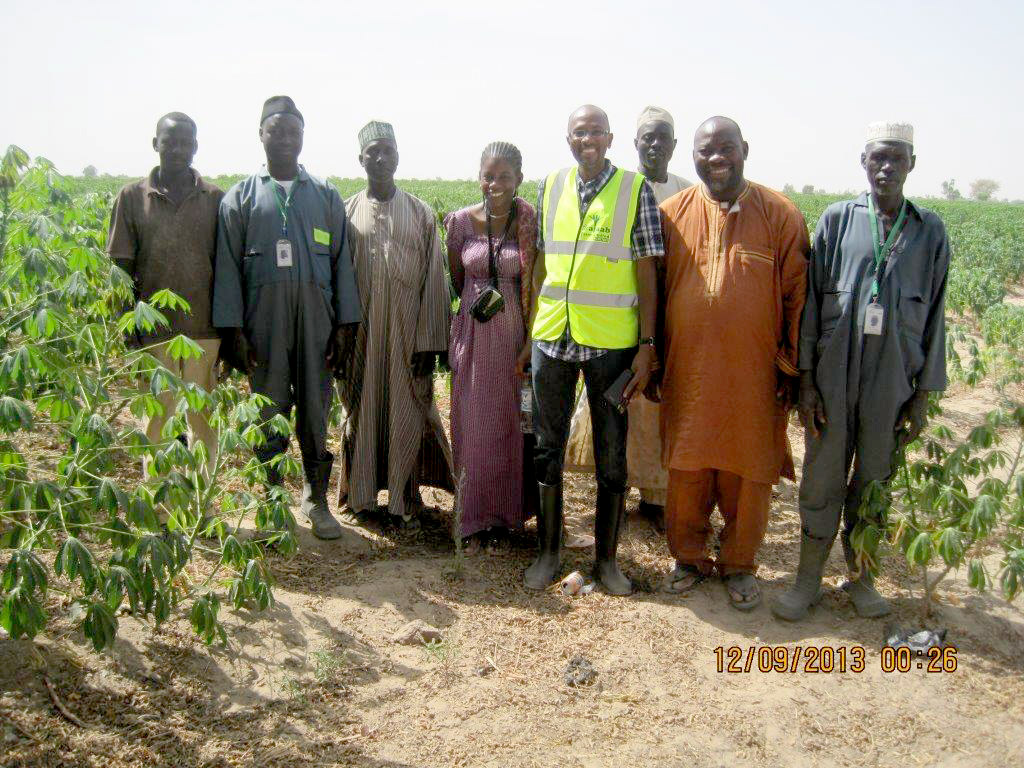Scientists from the International Institute of Tropical Agriculture (IITA) Ibadan and partners have successfully established a 100-hectare farm with cassava in Tureta, Sokoto State ―one of the semi-arid regions of Nigeria—breaking the barriers posed by climate change, and reinforcing the scientific theory that the root crop could be a lifeline to farmers in drought-prone regions, and even in the face of climate change.
Dr Richardson Okechukwu, Leader of Nigeria’s Cassava Transformation Agenda at IITA, who gave technical backstopping to the successful establishment of the cassava farm in that region said, “Results from Sokoto clearly show that cassava is a crop that can guarantee food security in Africa.”
“This gives opportunity for farmers in the northern parts of Nigeria to grow cassava and reap the benefits,” he added.
Located in northwest Nigeria, Sokoto is characterized by Sahel savanna, and surrounded by isolated hills. The rainy season in the state is from June to October. From late October to February, during the cold season, the climate is dominated by the Harmattan wind blowing Sahara dust over the land. The dust dims the sunlight thereby lowering temperatures significantly and also leading to the inconvenience of dust everywhere in houses.
Despite the limitations of the terrain, farmer Salihu Abubakar of Saajab Farms contacted IITA via the Federal Ministry of Agriculture for help to enable him to establish a cassava farm in the region.
“It was a great challenge … the challenge of water and also that of termites. The first materials we planted were eaten by termites… but we never gave up. The challenge of water was solved through irrigation while we used neem to treat the planting materials,” Dr Okechukwu explained.
By taking heed to counsel from researchers, farmer Abubakar is now the owner of a 100-ha cassava farm in one of Nigeria’s semi-arid zones, and the farm is expanding.
Farmer Abubakar said he had secured contracts from several countries including China to export cassava chips, and his farm would contribute significantly in meeting the demand.
The success of the farm has been hailed by the State Government with the Governor of the state pledging to support the investment by providing the enabling environment.
The farm successfully demonstrates how a former “waste land” can be converted to productive land, thanks to the Cassava Transformation Agenda and the work of researchers at IITA.
“For me, all I can say is that I am grateful to IITA,” farmer Abubakar said.


No Comments